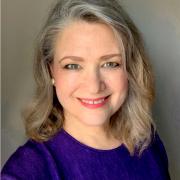

Child-centered lesson planning can have a daily positive impact on your time and energy and on the quality of children’s learning and engagement—but it takes organization and a toolbox full of strategies and ideas.
Whether you are just beginning your career in early childhood education or have many years of experience in the classroom, this book helps you to assess where you are and what you are doing and provides you with tips and resources to inspire creative, developmentally appropriate teaching approaches.
In each chapter, you’ll findIn this video, hear how creating child-centered lessons plans can result in joyful learning experiences for the children in your classroom.
Table of ContentsMasterson, M.L. 2021. Transforming Teaching: Creating Lesson Plans for Child-Centered Learning in Preschool. Washington, DC: NAEYC.
Related Resources"The Power of Knowledge to Transform Teaching and Learning" - In this article, Adrienne Williams discusses her journey to adopting a knowledge-based curriculum and how it supports students in the growth of their knowledge, skills, and identities as readers, writers, and learners. (Young Children, December 2020)
"Quick and Easy Notes: Practical Strategies for Busy Teachers" - Celeste C. Bates, Stephanie Madison Schenck, and Hayley J. Hoover share strategies to develop a system for taking useful notes that ground teaching decisions and enrich children’s portfolios with examples of their everyday learning. (TeachingYoung Children, October/November 2019)
"Observing, Planning, Guiding: How an Intentional Teacher Meets Standards through Play" - Tackling the misperception that a rigorous, standards-based kindergarten cannot also be a child-directed, play-based kindergarten, Patricia McDonald shows how developmentally appropriate practice accomplishes academic rigor through play. (Young Children, March 2018)
Marie L. MastersonMarie Masterson, PhD, is the director of quality assessment at the McCormick Center for Early Childhood Leadership at National Louis University, where she oversees evaluation for ExceleRate Illinois. She holds a doctorate in early childhood education, is a licensed teacher, and is a national speaker and author of many books and articles that address research-based, practical skills for high-quality teaching, behavior guidance, quality improvement, and leadership. She is a contributing editor of Developmentally Appropriate Practice in Early Childhood Programs Serving Children from Birth Through Age 8, fourth edition, and coauthor of
Building on Whole Leadership: Energizing and Strengthening Your Early Childhood Program. Dr. Masterson is a former higher education faculty teacher trainer and early childhood specialist for the Virginia Department of Education. She provides educational consulting and professional development training to child care programs, schools, and organizations engaged in quality improvement and equitable teaching initiatives.

Masterson’s instructive book explores all facets of preschool lesson planning to energize intentional teaching, bridging the dichotomy between teacher and child-centered curriculum. Full of useful classroom examples and complete lesson plan samples, this book addresses planning for all developmental domains, all learner types, and all modes of child activity.
—Michael Haslip, Assistant Professor of Early Childhood Education, Drexel University
This book encourages early childhood educators to deepen their teaching practice. It offers practical and applicable strategies to intentionally develop lesson plans that are culturally, linguistically, and developmentally responsive and to provide high-quality classroom learning experiences where “children recognize their experiences in the curriculum, materials, and activities.”
Dr. Masterson is an educator of educators and is an important voice in providing professional learning for the field of early childhood education and has written an anchor text for teachers and administrators, at all levels of their development, to build classrooms “for children to engage with peers and adults in meaningful learning throughout each day.”
—Emily Simon, P-2 Manager, Chicago Public Schools
I believe hands-on exploration is a major component in the early years. This book will be a great asset to educators everywhere. The examples of emergent teaching, individualized teaching, and teaching children with disabilities are great resources for assistant teachers.
—Hope Cain, Associate Teacher, NASA Goddard Child Development Center